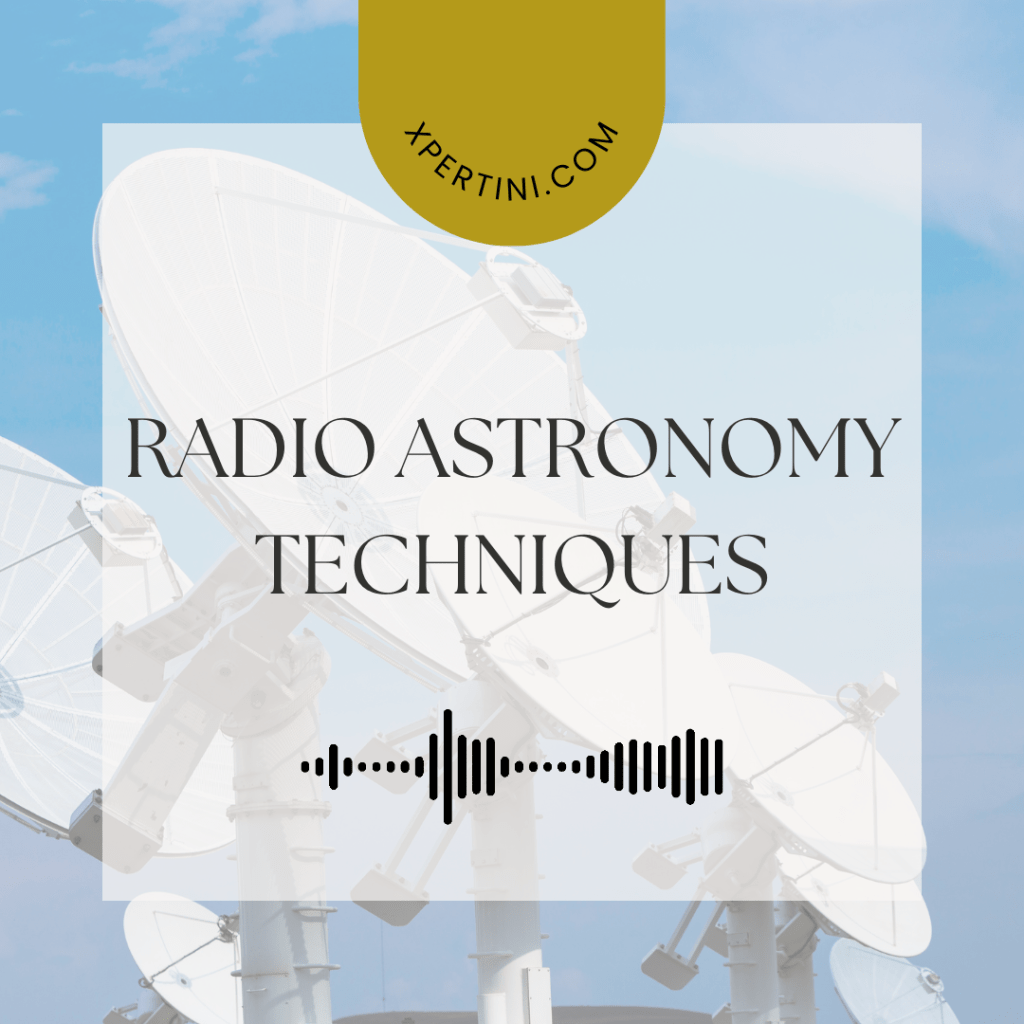Radio Astronomy Techniques
Course Summary
In this comprehensive radio astronomy course, start a journey through the fundamental principles and advanced technologies shaping our exploration of the cosmos. Delve into the radio frequency interference (RFI) as you reveal detection and filtering techniques. From the challenges of data acquisition to the precision of signal processing in radio astronomy, grasp the nuances of calibration and imaging methods.
Explore Very Long Baseline Interferometry (VLBI) and Aperture Array Technologies, gaining insights into cutting-edge advancements propelling astronomical research. Navigate the captivating world of Fast Radio (FRBs), celestial enigmas sparking global collaborations and speculative fervor. Encounter the atmospheric effects and instrumentation challenges that researchers face, learning about innovative corrections and solutions.
Dive into the fascinating domain of notable radio astronomy discoveries and collaborative international projects that have revolutionized our understanding of the universe. Understand the atmospheric effects impacting observations and the innovative corrections that counteract them. Explore the latest advancements in instrumentation, revealing the challenges and breakthroughs that drive the field forward.
As you progress, absorb the insights from radio astronomy case studies, gaining a profound understanding of the field’s evolution. Finally, explore the diverse career opportunities in radio astronomy, ranging from academic and research positions to industry roles in cutting-edge technologies.
This course is a testament to the ever-evolving nature of radio astronomy, where adaptability and a deep understanding of advanced technologies are paramount. Immerse yourself in the global network of radio astronomy projects, and emerge ready to contribute to the next wave of discoveries in this promising and impactful field.
Course Overview
This course delves into the fundamental principles and advanced techniques of radio astronomy, offering a comprehensive exploration of the tools and methodologies employed in the field. Participants will gain an in-depth understanding of how radio waves are utilized to unveil the mysteries of the universe.
Course Objectives
- Understand the foundational concepts of radio astronomy.
- Analyze and interpret radio frequency data for astronomical observations.
- Explore historical developments in radio astronomy.
- Familiarize yourself with cutting-edge technologies used in radio astronomy.
- Develop problem-solving skills in overcoming challenges specific to radio astronomy.
- Gain insights into the current research trends and discoveries in the field.
- Apply knowledge in real-world scenarios through practical exercises.
- Collaborate effectively with a team in conducting radio astronomy experiments.
- Identify and assess potential career opportunities in radio astronomy
Course Outcomes
- Demonstrate an understanding of basic astronomy principles relevant to radio astronomy.
- Able to categorize and explain the different types of radio telescopes and their applications.
- Successfully conduct radio observations, including data collection, analysis, and interpretation.
- Demonstrate the use of radio astronomy software and tools for data visualization.
- Apply their knowledge to design and execute a small-scale radio astronomy project.
- Integrate theoretical concepts with practical applications in radio astronomy.
- Actively participate in simulated scenarios, refining their skills in troubleshooting and problem-solving.
- Explore advanced topics in radio astronomy independently, staying updated on emerging technologies.
- Receive guidance on career paths and opportunities in radio astronomy.
Course Audience
- Astronomy enthusiasts seeking a specialization in radio astronomy.
- Physics and engineering students interested in observational techniques.
- Professionals in related fields looking to broaden their expertise.
- Individuals aspiring to pursue a career in radio astronomy research.

